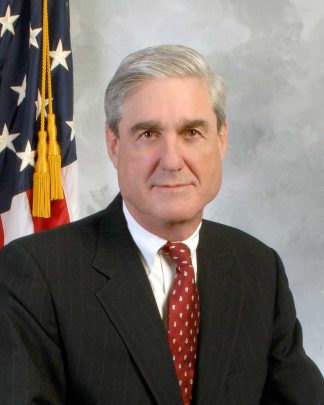By Rafael E. Tarragó
Issue: The appointing of a Special Counsel for the investigation of alleged Russian interference in the United States presidential elections of 2016 and the possibility of collusion by members of President Trump’s presidential campaign.
The past week has seen a swirl of high profile news stories about all of the different investigations looking into the role Russia played in the 2016 Presidential Election and claims of collusion that have been leveled at the Trump Campaign. Rumors were also recently reported that President Trump was considering firing Special Counsel Mueller.
Keeping all the strands of this story straight can be difficult and the topic is highly political and often shaded with partisan bias. This post will help you navigate the flow of information, provide you with links to publicly available information, and point you to University of Minnesota Libraries resources to guide your understanding.
A quick chronology of the launch of the investigations
- January 25, 2017: Investigations are initiated by the House and Senate
- March 2, 2017: Attorney General Jeff Sessions recuses himself from leading any investigation of the alleged Russian interference
- March 17, 2017: Deputy Attorney General Rod Rosenstein appoints Robert Mueller as special counsel to oversee the federal investigation of Russia’s involvement in the 2016 presidential election
Freely available information
First-hand accounts of any issue are important as a primary documentary source. One example of a primary documentary source is original reporting conducted by the press. Popular news outlets, including the New York Times, Wall Street Journal, and NPR, are covering the topic. These sources include both reporting and editorial commentary that cover different aspects and provide different viewpoints on the topic.
The Washington Post offers an analysis and a history of the appointment of a special prosecutor including the Watergate and Whitewater scandals.
Government websites also contain first-hand information. Visiting and searching the Department of Justice website provides:
- The press release announcing Robert Mueller’s appointment.
- A short biography telling you more about Robert Mueller’s credentials and experience.
Library resources
The University of Minnesota Libraries has access to news reports that might not be available to read online. Check out the database ProQuest Newsstand and the Libraries’ subscription to the Wall Street Journal’s website. For the Libraries access to WSJ.com you’ll need to set up an account the first time you use it and access is limited to UMN students, faculty, and staff.
The Libraries also subscribe to resources that help facilitate the search of U.S. Congressional documents in the database ProQuest Congressional.
Expert analysis is important in order to understand an issue in its context—whether it is historical/chronological context or legal precedence. The database Academic Search Premier
is a digest to articles of analysis in the social sciences, including American politics and American history from academic as well as reputed news and commentary periodicals.
Academic Search Premier can also be used by any state resident with a public library card going through the Electronic Library of Minnesota.
University of Minnesota research and expertise
This topic is so new that no researcher will have published scholarly research on it yet, but librarians can help navigate the tools listed above. Government Publications Librarian, Alicia Kubas, can field questions about U.S. government sources. History and Political Science Librarian, Rafael E. Tarragó, can help researchers seeking historical or political context.
Since this topic is so politically fraught it’s important to look at multiple sources with multiple viewpoints for the widest understanding of all that you’re hearing. The primary reporting from reputable news sources and government records will likely be the least filtered access to information on the topic.
When reading any source it is important to think about the Association of College and Research Libraries’ Framework for Information Literacy that reminds researchers that “Authority Is Constructed and Contextual” and “Information Has Value” when engaging with articles and posts to ensure that sources are reputable and reliable and to decipher potential agendas or preferences.
Note: Rafael E. Tarragó is Librarian for Political Science at the University of Minnesota Libraries. Jon Jeffryes and Lindsay Matts-Benson contributed to this report.





